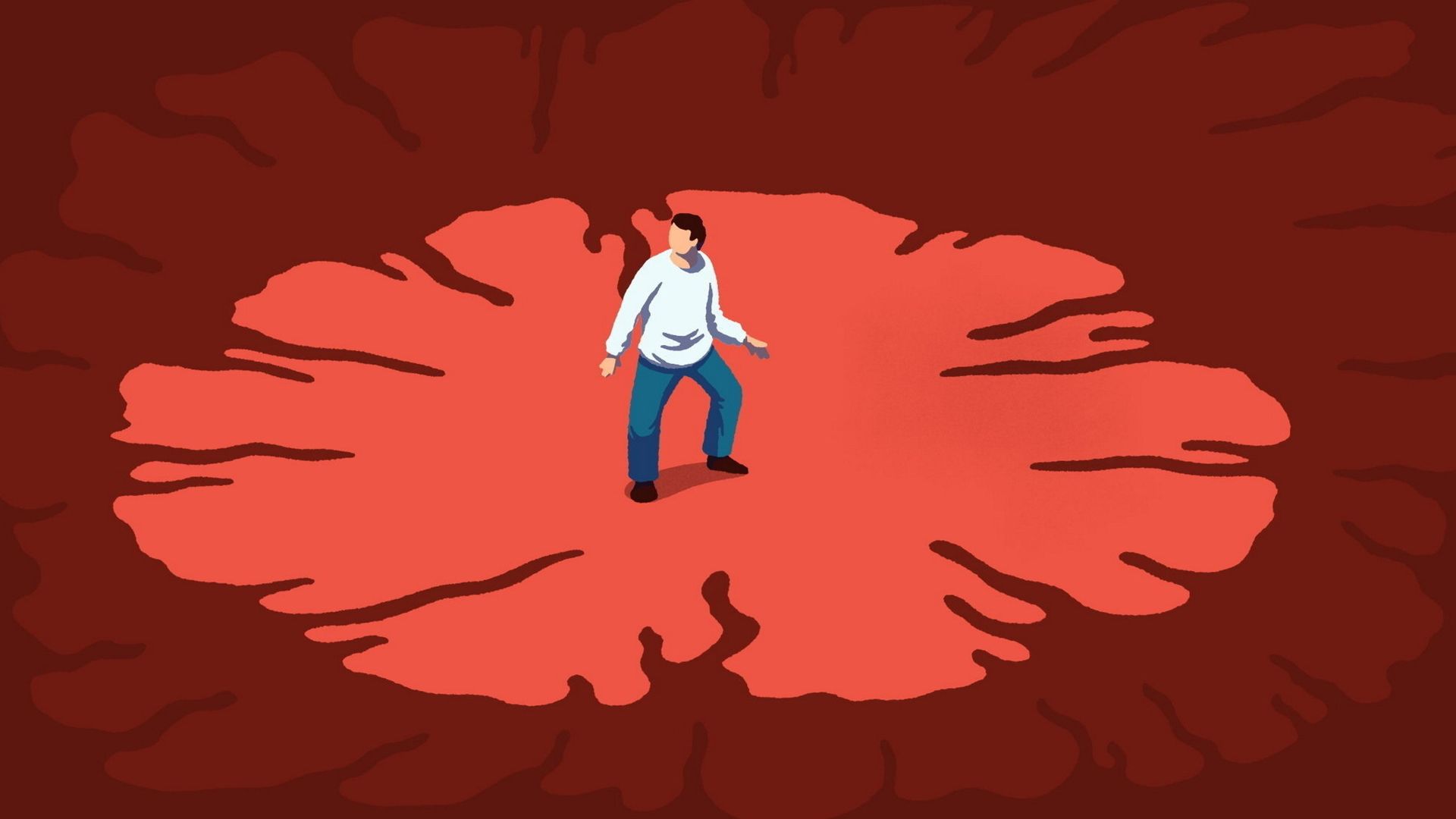尊敬的用户您好,这是来自FT中文网的温馨提示:如您对更多FT中文网的内容感兴趣,请在苹果应用商店或谷歌应用市场搜索“FT中文网”,下载FT中文网的官方应用。

The writer is a science commentator
本文作者是一位科学评论员
The idea of cancer as predominantly a disease of old age is beginning to creak. An analysis last year showed that, in the G20 group of industrialised nations, rates of several cancers are rising faster among the young than among the old.
癌症主要是老年人的疾病的观念开始出现问题。去年的一项分析显示,在工业化国家集团20国集团中,一些癌症的发病率在年轻人中的增长速度比老年人更快。
Now, scientists at the American Cancer Society have confirmed the trend across a wider range of cancers, with statistics broadly suggesting that a Gen X or Millennial is more likely to develop certain types of the disease than her Baby-boomer parents. Half of the 34 types studied showed a “birth cohort effect”, meaning they are increasingly common among successively younger cohorts. For pancreatic and kidney cancer, for example, the incidence rate among those born in 1990 was two to three times the rate of those born in 1955.
现在,美国癌症协会(American Cancer Society)的科学家们已经证实了更广泛范围的癌症趋势,统计数据普遍表明,X世代(Gen X)或千禧一代比他们的婴儿潮一代父母更有可能患上某些类型的癌症。在研究的34种类型中,有一半显示出“出生队列效应”,这意味着这些癌症在连续更年轻的群体中越来越常见。以胰腺癌和肾癌为例,1990年出生者的发病率是1955年出生者的两到三倍。
The academics who published their findings in Lancet Public Health last week say these are “generational shifts in cancer risk”. The shifts come with profound implications. A tide of younger patients poses a challenge for future cancer care, whether it is rethinking screening programmes or finding ways to preserve fertility during treatment. As the disease itself metastasises into something unfamiliar, the dream of consigning it to history grows more challenging.
上周在《柳叶刀公共卫生》(Lancet Public Health)上发表研究结果的学者们表示,这些是“癌症风险的代际转变”。这些转变带来了深远的影响。年轻患者的增加给未来的癌症护理带来了挑战,无论是重新思考筛查计划,还是寻找在治疗过程中保护生育能力的方法。随着疾病本身转变为一种陌生的形态,将其彻底消灭的梦想变得更加具有挑战性。
Hyuna Sung, an Atlanta-based epidemiologist at the ACS, teamed up with colleagues to dig into American cancer registry data on more than 23mn people who were diagnosed with 34 types of cancer between 2000 and 2019. The researchers also drew on registries recording over 7mn deaths from 24 types of cancer over the same period.
美国癌症协会(ACS)驻亚特兰大的流行病学家Hyuna Sung与同事合作,深入研究了2000年至2019年间被诊断出患有34种癌症的2300多万人的美国癌症登记数据。研究人员还参考了同期记录的24种癌症导致的700多万人的死亡数据。
The data was sorted according to birth year, with patients grouped in five-year intervals from 1920 to 1990. Previous research by the ACS and other groups has found evidence of several cancers — including colorectal (or bowel), pancreatic, kidney, gallbladder and testicular — rising in the under-50s. Sung and colleagues found that same pattern writ large.
数据根据出生年份进行分类,患者从1920年到1990年每5年进行一次分组。美国癌症学会和其他组织之前的研究发现,包括结直肠癌(或肠癌)、胰腺癌、肾癌、胆囊癌和睾丸癌在内的几种癌症的发病率在50岁以下人群中呈上升趋势。Sung和他的同事们发现了同样的模式。
Among the new conditions trending upwards in younger generations are cancers of the small intestine, liver cancer in women and anal cancer among men. In some cases, death rates tacked upwards with incidence, including for colorectal, liver (in women) and testicular cancers. “These findings are sobering as they indicate the increased cancer risk in younger generations is not merely an artefact due to more frequent cancer detection and diagnosis,” Sung told me. “Instead, it points to a genuine increase in cancer risk at the population level, with the increase in incidence being substantial enough to outweigh improvements in cancer survival.”
在年轻一代中,小肠癌、女性肝癌和男性肛门癌等新发病症状呈上升趋势。在某些情况下,死亡率与发病率呈正相关,包括结直肠癌、女性肝癌和睾丸癌。宋教授告诉我:“这些发现令人警醒,因为它们表明年轻一代的癌症风险增加并非仅仅是由于更频繁的癌症检测和诊断所导致的人为现象。相反,它指向了人群层面上癌症风险的真正增加,发病率的增加足以抵消癌症生存率的改善。”
That many of the cancers afflicting younger patients are gastrointestinal — including colorectal, bile duct, liver and gall bladder — might offer clues. Jeffrey Meyerhardt, chief clinical research officer at Harvard University’s Dana-Farber Cancer Institute, which recently opened a clinic focusing on under-50s with colorectal cancer, says there are likely unidentified risk factors but there are also known risk factors, like sedentary behaviour, a change in diet, plus rising rates of obesity and diabetes.
许多年轻患者患有的癌症是胃肠道癌症,包括结直肠癌、胆管癌、肝癌和胆囊癌,这可能提供了一些线索。哈佛大学(Harvard University)达纳-法伯癌症研究所(Dana-Farber Cancer Institute)的首席临床研究官杰弗里•迈耶哈特(Jeffrey Meyerhardt)表示,可能存在未知的风险因素,但也有已知的风险因素,如久坐不动的行为、饮食改变以及肥胖和糖尿病的不断增加。最近,该研究所开设了一个专门针对50岁以下结直肠癌患者的诊所。
Those same factors could be disrupting the gut microbiome, the balance of internal bacteria thought to influence health and immunity. “But exactly what those [microbiome] changes are and how to reverse or improve them are not known,” Meyerhardt said.
这些因素可能会干扰肠道微生物群,这是一种被认为会影响健康和免疫力的内部细菌平衡。迈耶哈特说:“但是这些[微生物群]的变化是什么,如何扭转或改善它们,目前还不清楚。”
Bafflingly, many of the new clinic’s young patients are in good shape, exercise regularly and eat healthily. That is prompting a hunt for environmental carcinogens capable of affecting entire generations. Last year, New Zealand researchers showed that microplastics, now found everywhere and ingested from infancy onwards, could disrupt the gut lining. The prevalence of microplastic pollution since the 1960s — the tiny plastic particles come from consumer products and the breakdown of industrial waste — has the right timeline and might explain the compounding effect between generations, but it needs further investigation.
令人费解的是,这家新诊所的许多年轻患者身材良好,经常锻炼,饮食健康。这促使人们寻找能够影响整个世代的环境致癌物。去年,新西兰的研究人员发现,现在随处可见的微塑料,从婴儿开始就被摄入,可能会破坏肠道内壁。自20世纪60年代以来,微塑料污染的流行——来自消费品和工业废物分解的微小塑料颗粒——有正确的时间线,可能解释了代际间的复合效应,但这需要进一步的调查。
In the meantime, screening programmes are changing: in the US, a task force has advised breast cancer screening starts a decade earlier at 40; but experts agonise over doing something similar for colorectal cancer, because it would still miss those in their twenties and thirties.
与此同时,筛查计划也在发生变化:在美国,一个工作组建议乳腺癌筛查应该从40岁开始,但专家们对于是否对结直肠癌做类似的事情感到犹豫,因为这仍然会错过二三十岁的人群。
These are delicate calls. Wider screening carries downsides: expense, radiation exposure and false positives. And the over-50s still make up 90 per cent of cancer cases. Still, the shifting burden of disease deserves closer policy attention now.
这些都是微妙的决策。更广泛的筛查会带来一些不利因素:费用、辐射和假阳性。而且50岁以上人群仍占癌症病例的90%。尽管如此,疾病负担的变化现在仍然值得政策部门给予更密切的关注。